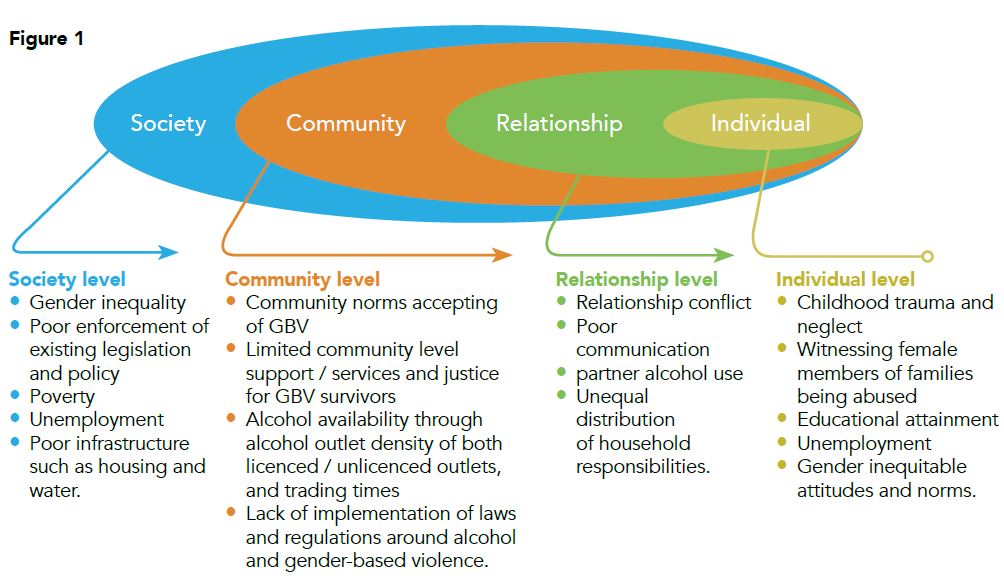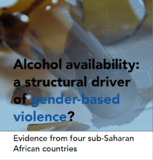Evidence review from Southern Africa
Alcohol availability - a key issue in gender-based violence
Alcohol consumption is a key structural driver of gender-based violence (GBV) and especially intimate partner violence (IPV). A new report from four countries in sub-Sahara Africa explores how the availability of alcohol – both alcohol outlet density and trading times – are associated with increased alcohol use, and increased risk for GBV perpetration and vicitimisation.
The Southern African Alcohol Policy Alliance (SAAPA) and The South African Medical Research Council (SAMRC) with the support of the Ford Foundation published the review on alcohol availability and the associated effects it has on Gender Based Violence (GBV) in December 2021. Both a summary and the entire report can be downloaded from here or the website of the Southern African Alcohol Policy Alliance.
South Africa, Botswana, Namibia and Zimbabwe are the countries that are being reported from in the study that investigates how the availability of alcohol influences increased rates of IPV (the most prevalent form of GBV). There are also presentations of the regulatory and legislative contexts of alcohol and GBV in the four countries, in addition to valuable case studies.
The report presents evidence from systematic reviews of the effectiveness of interventions to reduce alcohol availability. The reviews largely found that reducing alcohol availability by restricting alcohol outlet densities and outlet trading times was associated with reduced alcohol consumption and related harms.

The report is an excellent source of updated knowledge on research into the connection between alcohol consumption globally and of course especially in sub-Sahara Africa, and on what regulatory interventions that are the most valuable in reducing gender-based and intimate partner violence.

